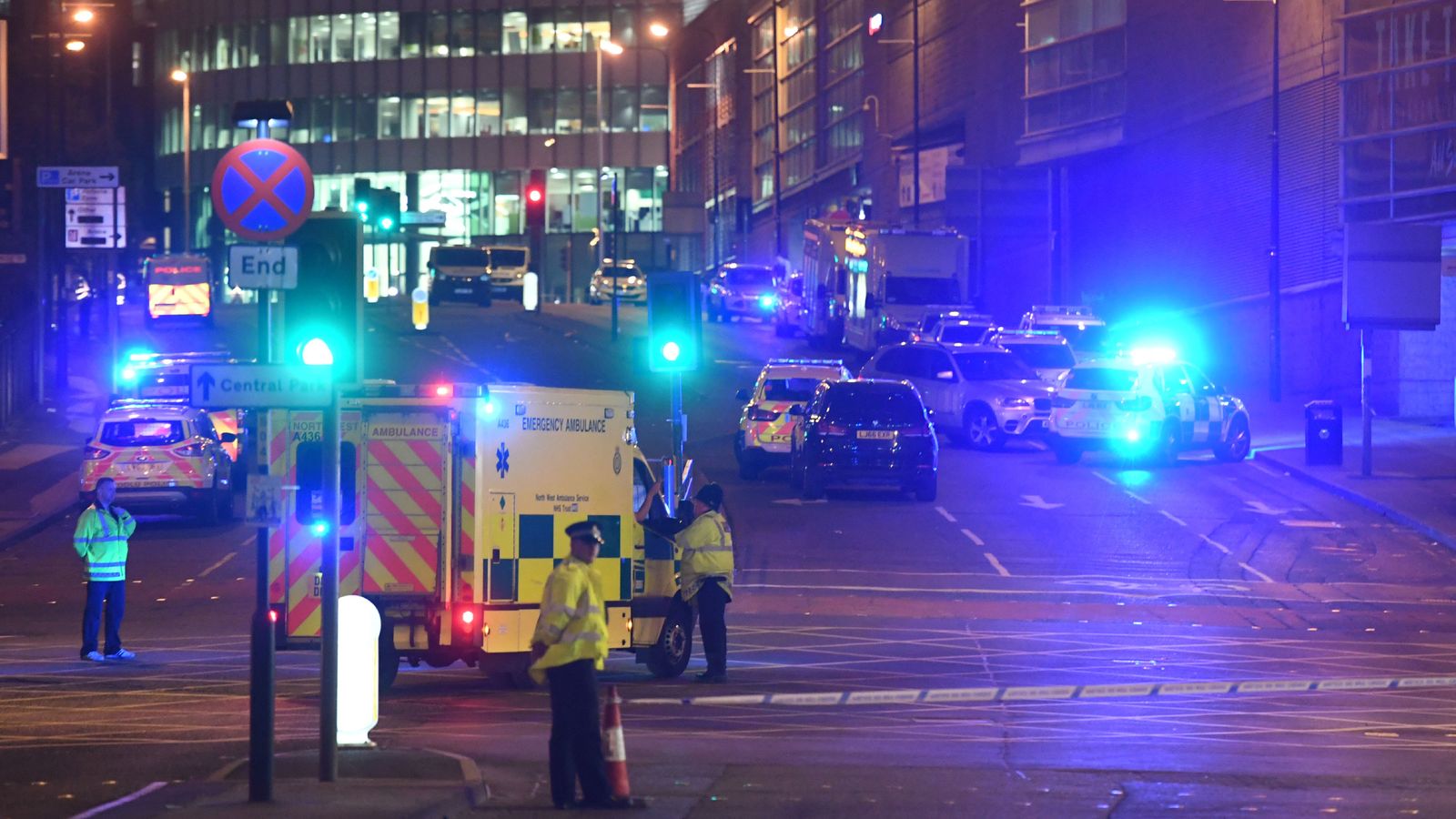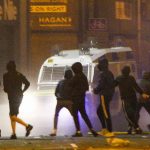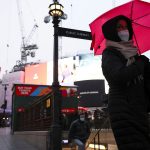The older brother of the Manchester Arena bomber has fled the country as he seeks to avoid giving evidence to the inquiry.
A friend of the bomber was also arrested as he tried to leave the UK on Monday, after claiming he was suffering from depression and should be granted anonymity.
Salman Abedi blew himself up at Manchester Arena in May 2017 killing 22 people and a second brother Hashem, is serving life in prison for helping build the bomb.
Ismail Abedi, their older brother, had asked the inquiry to give an undertaking that he would not be prosecuted using anything he might tell the hearing but it was refused.
As the inquiry begins to look at Salman Abedi’s radicalisation, Paul Greaney QC, for the inquiry, said their legal team had done “all it can to obtain evidence” from Abedi’s family.
However, his father, Ramadan, and mother, Samia, are in Libya and have refused to cooperate with inquiry or provide any statements or evidence “of any kind”, Mr Greaney said.
Ismail Abedi usually lives in Britain, but it was “highly regrettable he has also refused to give a statement or cooperate with the inquiry in any meaningful way”.
Manchester Arena attack: Bomber’s friend sentenced over fraud to buy chemicals
Manchester Arena bombing: Security worker told police about ‘crank’ praying before blast, inquiry hears
Manchester Arena bombing: Plotter Hashem Abedi held in prison with extremism separation unit
A section 21 notice has been delivered requiring him to turn up at the inquiry on Thursday but Mr Greaney added: “We understand he is not currently in the country and there is no indication about when he will return.
“Ismail Abedi clearly has important evidence to give the inquiry and we urge him to make contact with the inquiry, either directly or indirectly through legal representatives,” he added.
“As he surely must understand, if he does not do so, the public may infer that he has something to hide, and so may you.”
Sir John Saunders, the inquiry chairman, urged people not to make public statements that might discourage him from attending.
Another friend, Ahmed Taghdi, was arrested as he tried to leave the country on Monday.
The 29-year-old, who helped buy and store a car used to clear out the bomb factory in North Manchester, is refusing to give evidence, saying he is suffering from depression and should be given anonymity for his own protection.
He was an associate of a jailed ISIS recruiter called Abdalraouf Abdallah who is also refusing to answer any questions from the inquiry on the grounds that he might incriminate himself.
Taghdi had also been served with a section 21 notice and the inquiry had been granted an enforcement notice to ensure his attendance, at the High Court on Friday.
After his arrest, Taghdi claimed he was planning to return on Wednesday, and he had a return ticket for that date, the inquiry was told.
Please use Chrome browser for a more accessible video player
Family members have said that Ismail Abedi contacted his parents and got them to take his younger brothers back to Libya when he was concerned they had dropped out of college.
However, the inquiry has also heard that he had extremist material on his mobile phone when he was stopped returning to Britain in 2015.
After the attack, a disc drive was found at his flat in Manchester which included images of burned bodies and one depicting the black flag adopted by ISIS and the words: “I pledge allegiance.”
Ismail was also connected by forensic evidence to an item later found in the Nissan Micra that his brothers used to transport and store the chemicals that made the bomb.
Besides his family, the inquiry intends to call friends and associates and examine Abedi’s use of the internet and social media and his attendance at school, college, university and mosques.
Abedi’s younger brother, Hashem Abedi, was convicted of assisting in the preparation and planning of the attack and the inquiry has obtained a written statement from him.
In it he confesses to his role in the bombing and set out his motivations, the inquiry has heard.
“You will no doubt want to take this into account when considering Salman Abedi’s motivation and radicalisation,” Mr Greaney said.
“Some of the matters can be verified by other evidence,” he added.
“The statement is a self-serving document which amounts to pro-Islamic State propaganda and needs to be treated with some caution.
“In the light of what he says, you may conclude that the arena attack was influenced, at least, by the distorted ideology of the so-called Islamic State.”
Please use Chrome browser for a more accessible video player
The inquiry will also look at whether Abedi should have been referred to the government’s Prevent de-radicalisation strategy.
It will explore how the policy worked in 2017, what problems there may have been and what has been done since to improve the system.
Without naming the suspect in the killing of Sir David Amess, who was referred to Prevent, Sir John said the strategy was “very much the focus of public attention”
He said there was another inquiry into how it operates and whether it can be improved and he did not want to “tread on the toes of that inquiry”.
The inquiry continues.






















